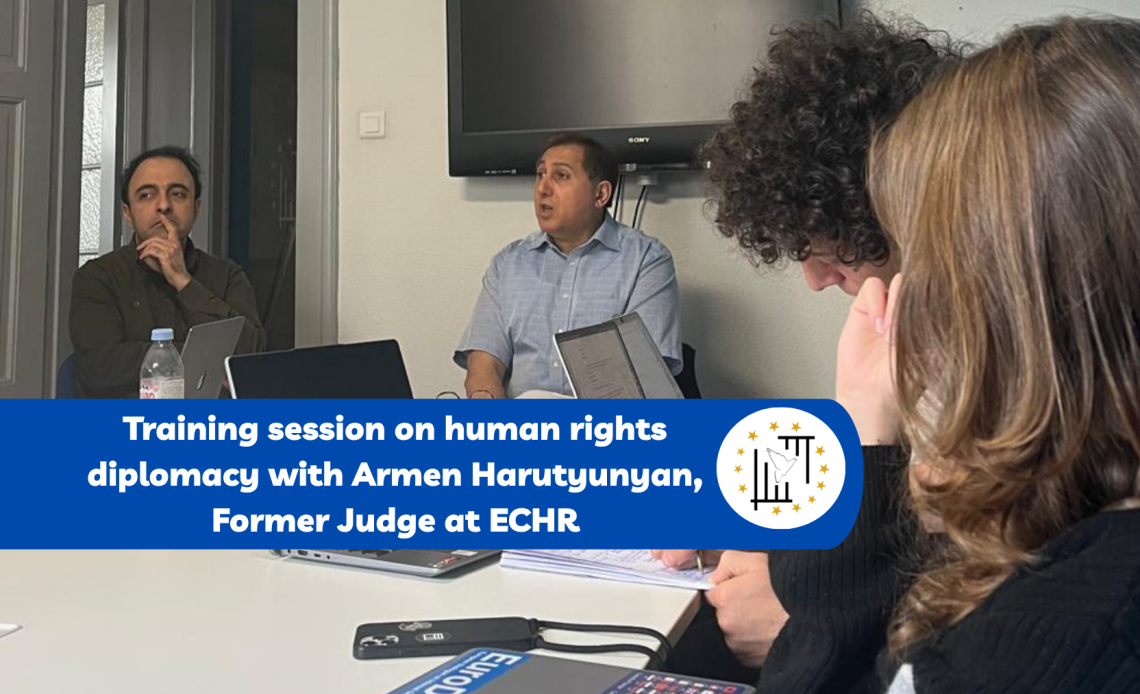On the 28th of May, ASSEDEL has the pleasure to host in our office Mr. Armen Harutyunyan, former
judge of Armenia at European court of human rights and former UN representative of High
Commissioner for Human Rights, for a special training session about his highly experienced career
path in Human Rights Diplomacy through the UN and Council of Europe system.
Human rights diplomacy system is based on two main pillars: Respect and Promotion. However if we
add International relations to the discussion , geopolitics play a pivotal role in defining the proper
strategy to spread human rights awareness. Therefore, the Human rights diplomacy system, due to its
connection to the geopolitical balance, emerges more as a living instrument rather than a static one.
UN Human rights diplomacy system
Indeed, when it comes to the UN, it is crucial not to forget that the UN has been established on 3 main
tasks. The institutions must function accordingly to these tasks, no matter if they are facing a regional
or global system. If not they lose their values.
– peace and security
– development
– human rights
Each UN department is implementing one or more of these tasks. The UN pursues these objectives
through different tools such as treaty bodies, which create committees specialized in the production of
treaties, generally located in Geneva; special procedures, which include special rapporteurs that visit
countries and focus on specific issues like torture or child abuse; and the Universal Monitoring
Review.
Afterwards there are International courts, whose role is to interpret treaties body (conventions) and the
constitutions conformely to today’s legal traditions and standards endorsing the concept of living
instrument. So, the International Courts represent the checks and balancing of the human rights
framework.
Promotion
The promotion of awareness and engagement is crucial when it comes to measuring the effectiveness
of human rights diplomacy. The promotion process is based on three cardinal points: firstly It is
fundamental to be informed about the country: their history, culture, religious beliefs which are crucial
to understand their perception of Human Rights. In second place It is also important to know the
geopolitical trends as well as national political tendencies. Lastly it is essential to have negotiation
skills in order to manage as well as possible the restricted UN budget dedicated to human rights
advocacy. Moreover, referring to his period in Kyrgyzstan as a Representative of the UN Regional
Office for Central Asia, in the Diplomacy frame when it comes to deal with different conceptions of
human rights, we can’t convince everyone, so we need to accept one step at a time. Therefore, in
Human Rights Diplomacy slow dynamic transition is also highly valued rather than a stagnant
situation.
In conclusion, ASSEDEL would like to end by quoting Mr. Armen Harutyunyan, whose words reflect
our view on the ongoing democratic backsliding: “Today, there are some countries that block the
promotion of human rights in the name of development and national security. This is contradictory
because there can be no development without human rights.”

